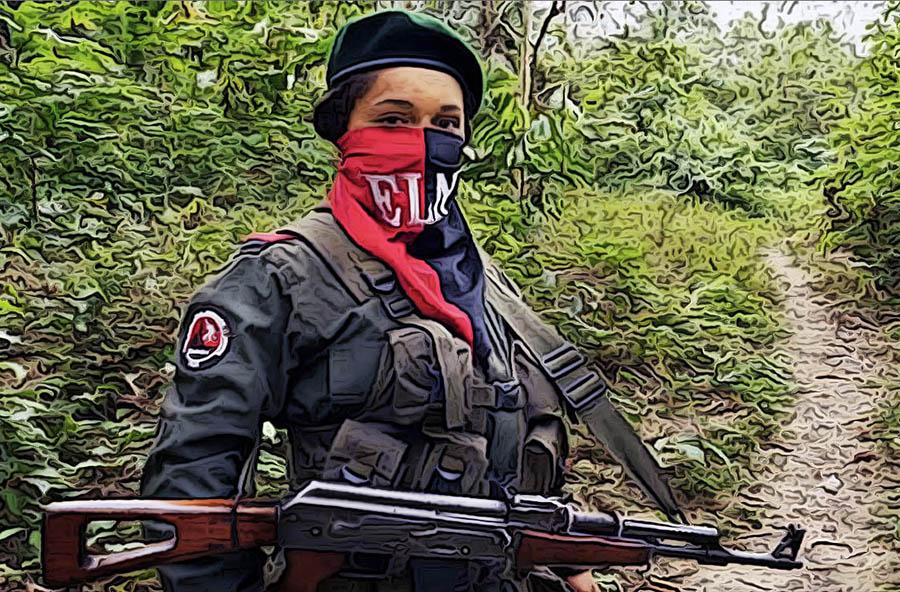
Oriana Torres
I am one of the many urban women who are in Colombian cities today and who have been trained and formed as guerrillas.
I started in high school, a beautiful experience, joining a collective of the ELN, there I was trained in that time of student struggle. It was in the collective’s plans to reach areas of social vulnerability, to learn about the realities that we were taught to feel in the depths of our being, what it awakens not to have a home to house their children, not to have money for health and not to be able to get food from day to day. That’s how I committed myself to that pain, the anguish of the poor I felt myself, which laid the foundations for me to train as an Elena guerrilla.
I began to be part of a clandestine political-organizational work commission in my city, we were a team assigned to a territory, to operate there as ELN; this is an enriching experience, since contact with the population allows us to internalize and enrich our political proposal. We patrolled at night, we went out to meet the people of the community, shaking their hands, seeing their faces with great acceptance despite our hoods, listening to the statements of their problems and difficulties, marked in me the decision to give myself to this project of life and revolution.
As time went by, we became more entrenched in the territory, the people took care of us, they began to understand what their real enemy was. When I was captured along with my son, it was a difficult moment, because I had to hand him over to the Colombian Institute of Family Welfare (ICBF), where a surrogate mother temporarily cared for him, then with the help of some relatives I managed to recover my son.
I received a conviction for rebellion and I had to adapt to a new scenario, such as the prison overflowing with corruption, the jailers forced sexual relations with the inmates, they were part of the consumption of drugs and micro-trafficking inside the prison. It was a very negative environment to which I was not accustomed, because with the guerrillas this is not seen.
Confronting myself with this reality strengthened me and I began to do social work with the inmates, some prosecuted or convicted of fraud, drug dealing (Law 30), ‘mecheras’ (women who enter supermarkets to take products and thus get a livelihood for their family), street dwellers, among others.
We built the Human Rights Committee, we did literacy courses, political culture workshops, we explained who the guerrillas were, because in their minds they thought that we were bad women. Through practice and daily sharing with them, we made them understand the value of being a woman and the need for women to be in the revolutionary struggle.
This group of women began to have respect in the prison yards, their unity was firm and strong, we became an enormous collective pressure, that what happened with one, involved all of them. There were girls imprisoned for drug use with very low self-esteem, with them we became their mothers, emphasizing the importance and value of each one, directing that when they were released they would be totally different women, that was the true resocialization.
I went through two maximum-security prisons. The day I got out I cried, as I hadn’t cried for a long time, I cried because my freedom came, but I didn’t cry because I was liberated, but because I was leaving all the comrades with whom in recent years we shared loneliness, the concern for our children, the sadness because our beloved companions left us, the pain for the deaths that occurred inside the prison due to medical neglect… Today I remember them all and I would like to know where they are.
Today, in 2024, I continue in the guerrilla movement, with my daughters and sons, with my brothers and sisters, who are about to celebrate 60 years of struggle and resistance as the ELN. From here we strengthen the proposal of the warrior woman, the worker, the informal vendor, the peasant, the urban woman. Firm in the commitment acquired with the struggle of the Colombian people, as our slogan of Not one step back, liberation or death (Nupalom).
Source: ELN Voces